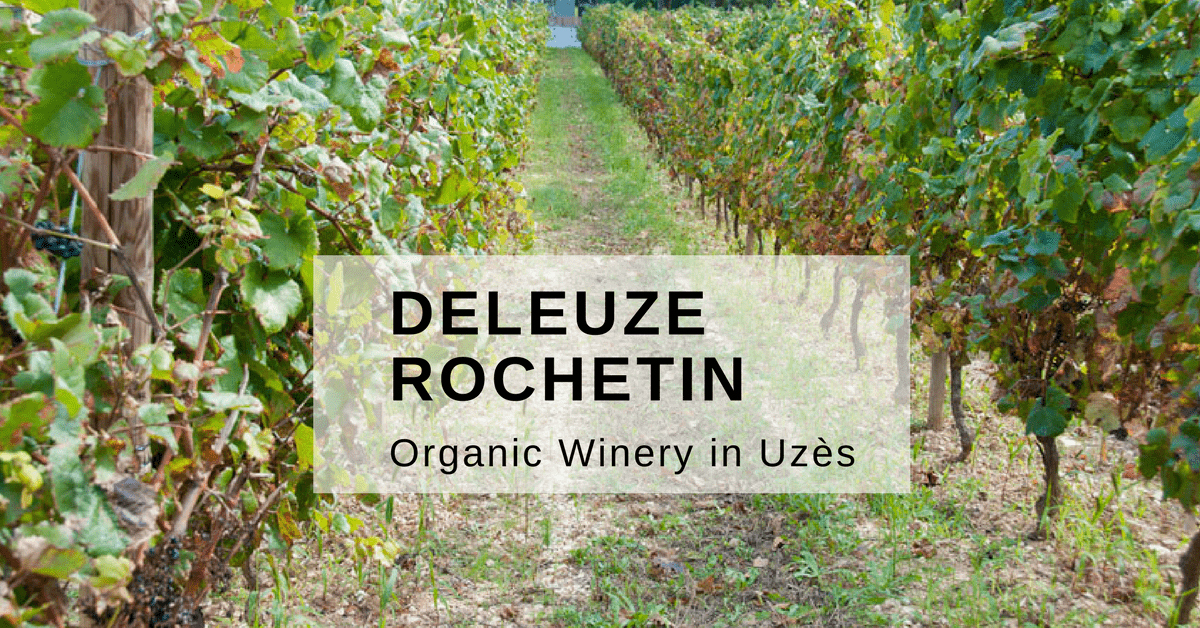
Organic Wine – Discover the winery Deleuze-Rochetin
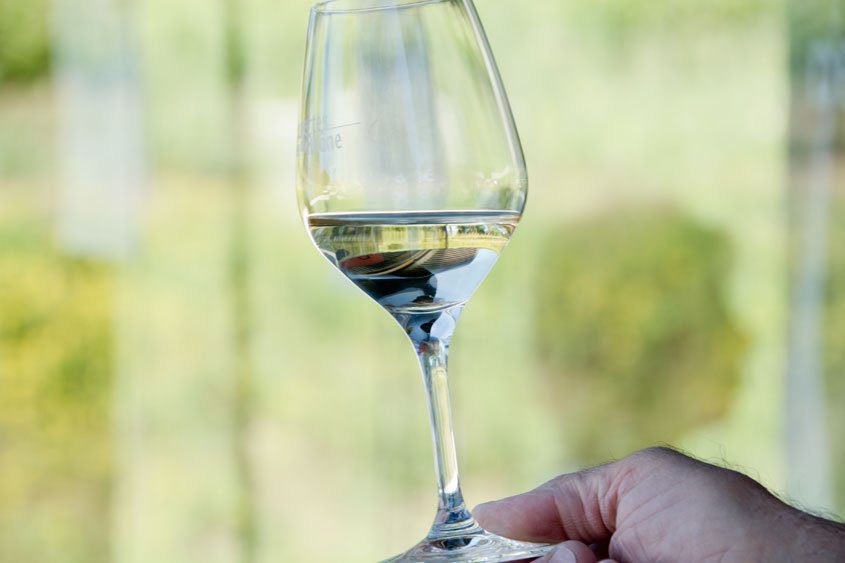
There are Organic wineries and then there’s Deleuze-Rochetin. An organic winery that has been growing grapes and bottling wine in Arpaillargues (Pays d’Uzès), in the Languedoc-Rousillon region of France since 1820. “At that time we couldn’t really refer to wine as being organic or not as agriculture, in general, was more natural. Grape vines were only ever cultivated with copper and sulfur. There was very little machinery,” I am told by Catherine Cathonnet who, with her husband Jean-Michel, owns the organic winery. In those days when Catherine’s family employed 40 of the residents of Arpaillargues, the domain covered 60 hectares but it was not only grape vines. They also tended to the surrounding woods. It was in 2006 that the modern-day Deleuze-Rochetin bottled its first wine. They mainly focus on winemaking but also grow wheat, olives & sunflower.
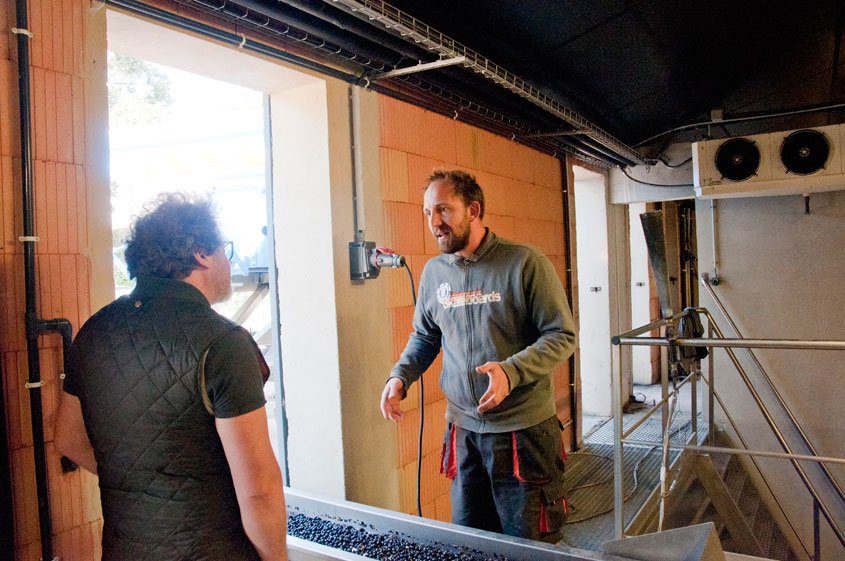
Baptiste Cartier is the vigneron the couple hired back in 2012 to take on the rather laborious task of making the wonderful wines the winery is now famous for. And it has been a marriage made in heaven. Baptiste has been a winemaker for over 15 years and has always worked on organic domains. The work of tending to the current 40 hectares is left to him and François, who originates from Spain. While Baptiste can be seen as the conductor of the team, it takes a team to make this place run smoothly, including his right-hand guy, François Serret, who tends to the grapes and the cellar during the grape harvest. Together with Damien Aillerie, who works in the fields, tends to the cellar & also handles sales in the wineries boutique, this is one solid team for some very solid wines. Of course, we can’t forget Mathéa Koch who you will meet in the boutique to present you the exquisite wines they have to offer.
Baptiste is only too happy to talk to me about the grapes & the wines made from them. ”There is no magic in the winery,” Baptiste says, “All we do is accompany the vines.” He goes on to say that he and François both have the same vision of how the grapes should be treated and how the wine should turn out.
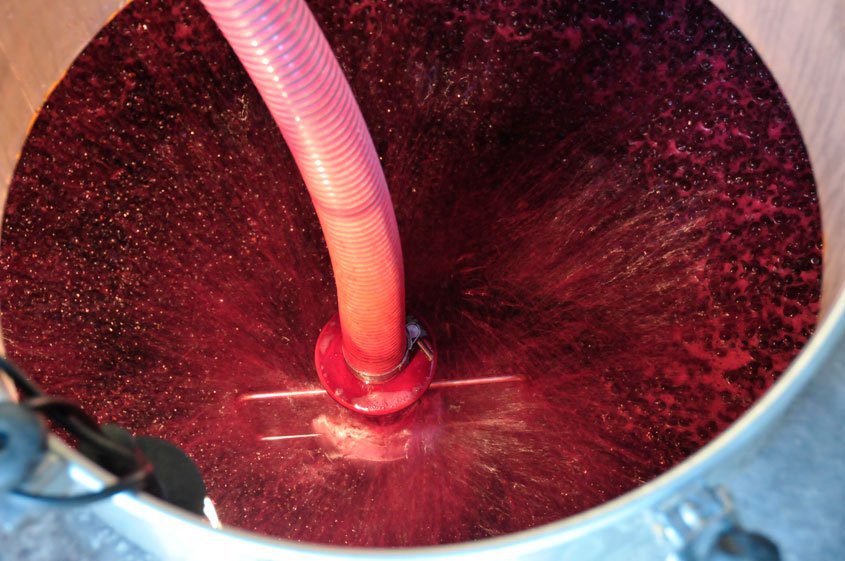
“There is no magic in the winery,” Baptiste says, “All we do is accompany the vines.”
Baptiste is very passionate about what he does and you can easily spend an entire afternoon following him around and absorbing all the fabulous knowledge he has to offer. I who am a wine dullard was enchanted and fascinated by the world of organic winemaking. I am certainly looking forward to tasting more of the wines of Deleuze-Rochetin and will appreciate every sip all the more after this enriching conversation.
Join me on a tour with Baptiste (and Catherine who also offered us some insight), to this very important part of the city of Arpaillargues and Uzès. The exchange that follows was not short by any means but I encourage you to read through it all as it was give you a clear picture of organic winemaking and Deleuze-Rochetin.
Between taking class photos and posting more tidbits to keep you all entertained, I slipped over across the street, to our neighbors Deleuze-Rochetin who are currently one of the wineries whose wines we serve in our French cooking classes.
Organic wine is so called, because of the limited (regulated), amount of chemicals used in the growing, vinification and bottling of the wine produced. An organic winery has a bit of margin within these numbers during the production chain. I asked Baptiste if he used indigenous yeasts – those that exist naturally in the region where the vines grow and in the grapes themselves, in his wine making.
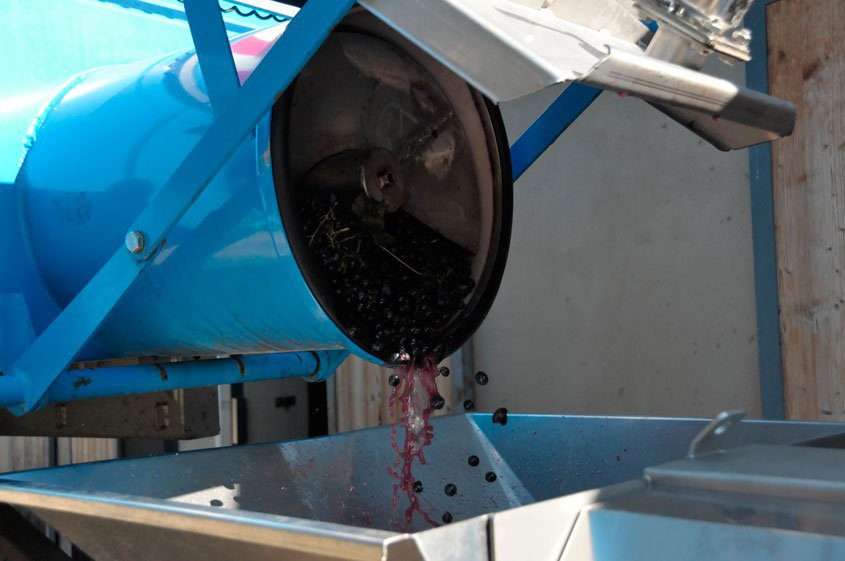
“No, without having full knowledge of how the indigenous yeasts would affect the wines, I don’t feel comfortable relying solely on indigenous yeasts.”
Some would argue that the use of commercial yeasts take away the character that ingenious yeasts can bring to the wine. For those who are in what is referred to as natural wine making, no sulfur is used as it would destroy native yeast and thus require the introduction of “foreign” commercial yeasts. But in Baptiste’s words, “I am not an Ayatollah. I prefer for the moment to use certified organic yeasts which do not bring any added flavors to the grapes as could be the case with non-organic commercial yeasts.” The organic yeasts do not have chemical additives that conventional commercial yeasts have.
Do you use sulfur or sulfates during the harvest, in the wine cellar or in the bottling process or during all three stages?
Remontage – French term for the process of pulling out wine from underneath the cap of grape skins and then pumping it back over the cap in order to stimulate maceration.
We add at the harvest as well as when we are putting it into the bottle to allow the wine to handle the transfer in the bottling process and to keep the maximum of its organoleptic* properties. We add sulfur as well when we bring in the grapes to select the grapes that will serve initial the fermentation and vinification process. Deleuze uses a lot less than the legal amount of sulfur tolerated in organic production – about 3 times less than the authorized amount for red wines – to ensure that the wine remains drinkable 30 mg/liter and 2 times less than the legal amount at 60-70mg on whites and rosés as they are more sensitive to oxidation.
We pay attention to what we add and really add the minimum in order to ensure the wine retains all its distinctive qualities.
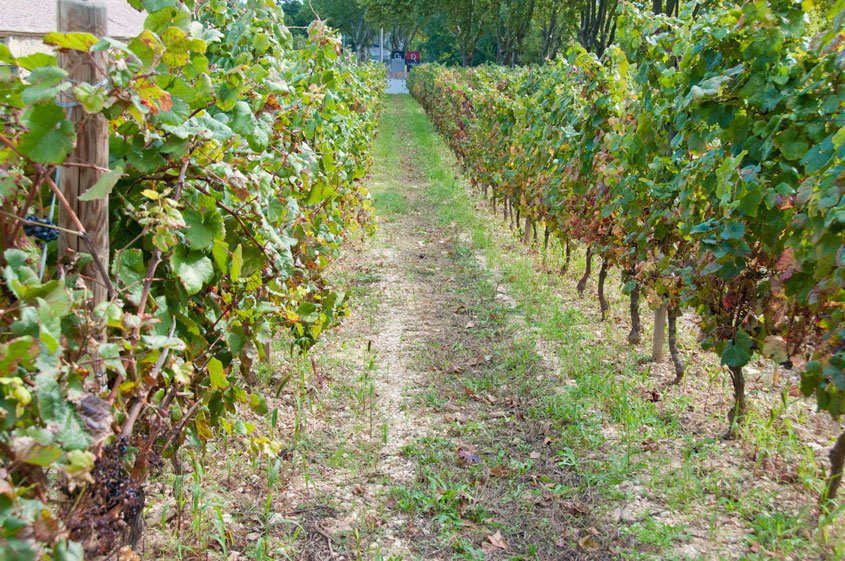
I wondered how they tended the grapes and the soil and I learned that it is done with a mechanical cultivator for tilling, which if I am understanding well is essentially a motorized hoe. This is used under the range of vines creating a patch of about 25-30 centimeter wide. outside of this area they allow the natural vegetation to grow between the rows where they will pass with all their tools to work on the vines. The advantage of this method of tilling is to allow a terrain that is more easily accessible to drive on or walk on to deal with the vines, particularly after some of the impressive storms that occur in the region.
“We use a number of grape varieties. White grapes: Viognier, Grenache blanc, Muscat, Sauvignon à petit grain, Roussanne, Chardonnay. Black grapes: Grenache & Syrah”
So when we think organic we have to wonder how one would deal with crop diseases. Clearly blasting them with chemicals is not an option.
We treat the vines with sulfur and cooper exclusively to combat the two principal fungi that could attack the plants. We also do a removal of excess buds in order to minimize the number of times we would need to treat the vines. In the Spring we incorporate a number of preventative measures to limit the development of diseases – trim the vines and maintain only those that interest us. This way we avoid having “bushes” that would have poor ventilation between them and thus hamper the development of grapes. With this process should the weather become an issue we would have avoided having damp vegetation and subsequently would limit the necessity of chemical intervention or even the use of natural elements like cooper or sulfur.
How do you tell which vines are organic? The vegetation is allowed to grow naturally.
As one could imagine organic agriculture is not for everyone, even if many of us certainly wish it could be – It is labor intensive and requires quite a bit of dedication and patience and frankly good humor. Not everyone comes to the choice of organic agriculture for the same reasons. In the case of Baptiste, he has always worked in organic wineries. As he told us earlier, “I’m not an Ayatollah but I do think about the impact we have on this planet which we cultivate and what we are going to leave behind us fro the future. We cultivate the earth rather than exploit it (reference to the French term “exploiter la terre”.
“We were at ease knowing that we were no longer poisoning our employees or even our neighbors.”
Catherine explains that Deleuze did not start off organic. “We used fertilizers and herbicides that were synthetically produced much like everyone else,” Catherine says. But a series of events and the death of an farmer who did some work for their domain in addition to working his own land, changed all that. “He was not at all prudent in the way he worked with and handled the chemicals. We always cautioned him. Due to the excessive amount of chemicals his farmer used on his own crops, he had an excess of grapes that he wished to sell to Deleuze”. As they were trying to maintain a certain quality for their harvest and wines, they did not take them. They learned later that while visiting another winery with his surplus, he collapsed. An MRI showed that he had an orange-sized tumor in his brain. Though they operated on him and removed the tumor, a few months down the road, he was gone. For Catherine there was no doubt in her mind that this was due to the chemicals, and certain government services didn’t refute her belief when she made an inquiry- there was definitely a link.
She goes on to say that the following year after they converted to organic agricultural practices, a weight was lifted. “We were at ease knowing that we were no longer poisoning our employees or even our neighbors.”
In terms of French wines, the world is quite familiar with Bordeaux, Champagne and the Loire valley. The Languedoc-Roussillon region, though the largest producer of wine in France, is lesser known abroad. So I had to ask, What makes the wine of this region different from others in France?
“Le terroir”. Catherine says, “Le terroir” for her includes as much the climate and earth as the men who till the earth. “Languedoc-Roussillon produces wines that are warm. We have a terrain that is of limestone and clay which brings out the fruitiness of the wine. Different farmers will cultivate the earth in different ways.”
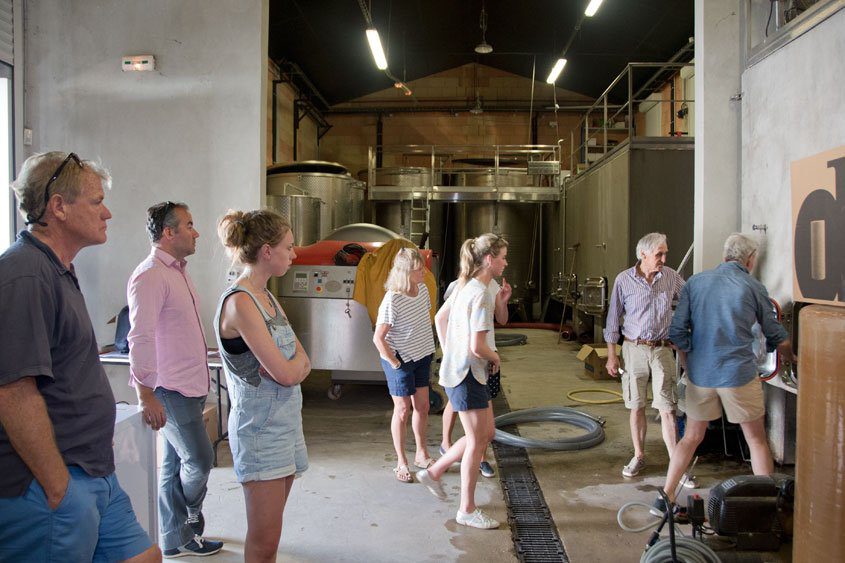
Climate change is a hot topic these days and whether you are believer or not it is something that is on the minds of many – including of course, farmers & producers.
Is climate change something that concerns you? Is there anything in particular that you are doing in terms of this issue or plan on doing?
It concerns me. But nothing has been concretely proven. [We may agree that] there is a problem – what is it that is causing this problem [is another debate]? Our exploitation of the earth? Is the earth meant to sustain human life indefinitely? I would of course like to believe that my children and their children will have a sweet life. It is a political choice and also an individual choice when we talk about living organically. We could go towards hydroponics [as some have suggested], but not sure it is what will save the earth. It is a complex situation. In this region we have an abundance of food while other areas are lacking in food production. We have had issues with plant illnesses – It could be the environment but it is also due to practices we are using to cultivate the earth. We have a choice when it come to dealing with these plant illnesses – we can take the shortcut or we could really tend to the crops cleanly.
“ Nature always regains its rights”
In 20 years it could be that we will have a climate in this region that is more similar to that of Palermo today. So we do have to ask ourselves questions such as what types of vines will we plant, particularly if we are thinking in the long-term. But against nature we can try things that work for some time but nothing is indefinite – Nature always regains its rights.
To work on things that are at this stage very hypothetical is difficult. Yes, we can try to be more aware and ponder over them. The research is interesting to look at as it could open up other discoveries that are interesting. It is not necessarily something that is constantly on my mind but I try to respect the earth as much as possible.
I’ve heard that 2015 is looking like a good year for wine. Why is that?
Yes, it has been a good year. We had moderate rain permitting the plants to allow the grapes to ripen in an interesting way. It was a hot year so we won’t have wine with high acidity so it would not be a great year necessarily for wines to keep and age but it will be wines that are quite aromatic and expressive in the white and rosé and even the reds. We are lucky to be situated at the foot of the Cévennes mountains with an acidity that would be superior for us here than perhaps those in the planes or closer to the coasts where they would not have as much of a difference in temperature day and night. The temperature fluctuations create the optimal conditions allowing for grapes which conserve their acidity..
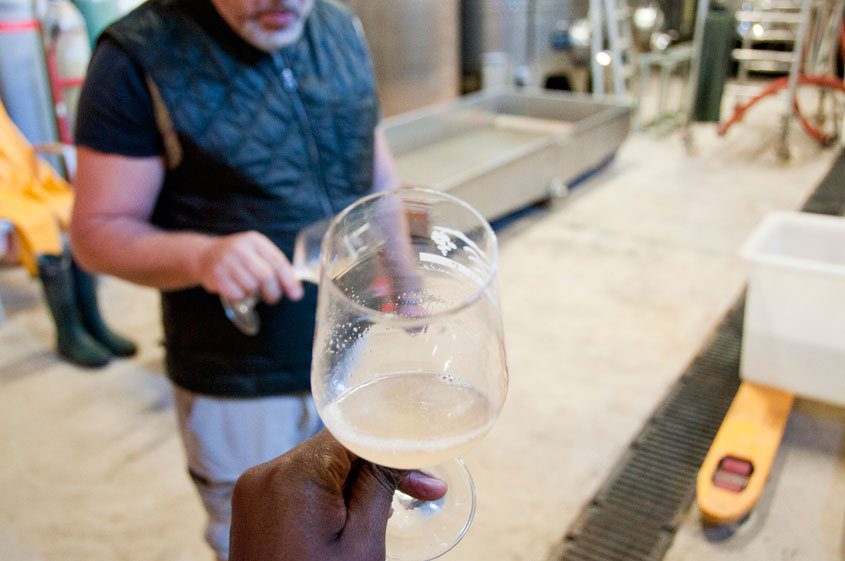
What are the conditions necessary to declare a year exceptional or not?
The health of the grapes. The grapes may be affected by bad weather resulting in gray rot or acid rot. Fruit flies who come and eat the grapes can also affect the harvest or fungi that develop on the grapes. 2014 was a delicate year because we brought in grapes that were not at full maturity as a preventative measure against these bad conditions. It is really based on the weather.
To ask us at the beginning of the harvest if it will be a good year is difficult to respond to as the conditions before the harvest as well as after could impact the quality of the grapes and thus the wine. [You live by the weather] which may put off your harvesting by two weeks but in two weeks time you have no idea what to expect then either. How will the raisins deal with the changing weather – if it rains and the mistral dries it all up, OK, but if it remains humid we have to hurry and harvest to avoid rot.
To conclude our interview I asked Baptiste and Catherine to give me their favorite food and wine pairing:
Baptiste: I like white wines with cheese. A Shiraz with Lamb, dry red wines with dark chocolate. Catherine mentioned their Heritage du Levant with Tagine or other dishes that are sweet and savory. Or their Harmattan with Grilled fish. “It has an iodized note that calls for seafood for me.” And lastly the Elzéar with a Fall dish – Poultry with a cream sauce for example.
There could be surprises with pairing food and wine. Things that could be unexpected like certain white wine and cheese.
Where to find Deleuze-Rochetin’s wines:
The wines of Deleuze-Rochetin can be found at their winery boutique – route d’Uzès 30700 Arpaillargues or throughout shops and restaurants in and around Uzès. They offer wine tastings and enjoying having visitors come in to learn about their wines. They speak, French, English, and German.
Visit their site
- Organoleptic properties are the aspects of food or other substances that an individual experiences via the senses—including taste, sight, smell, and touch.
If you love organic wines, you may also be interested in the Domaine de Malaïgue organic winery
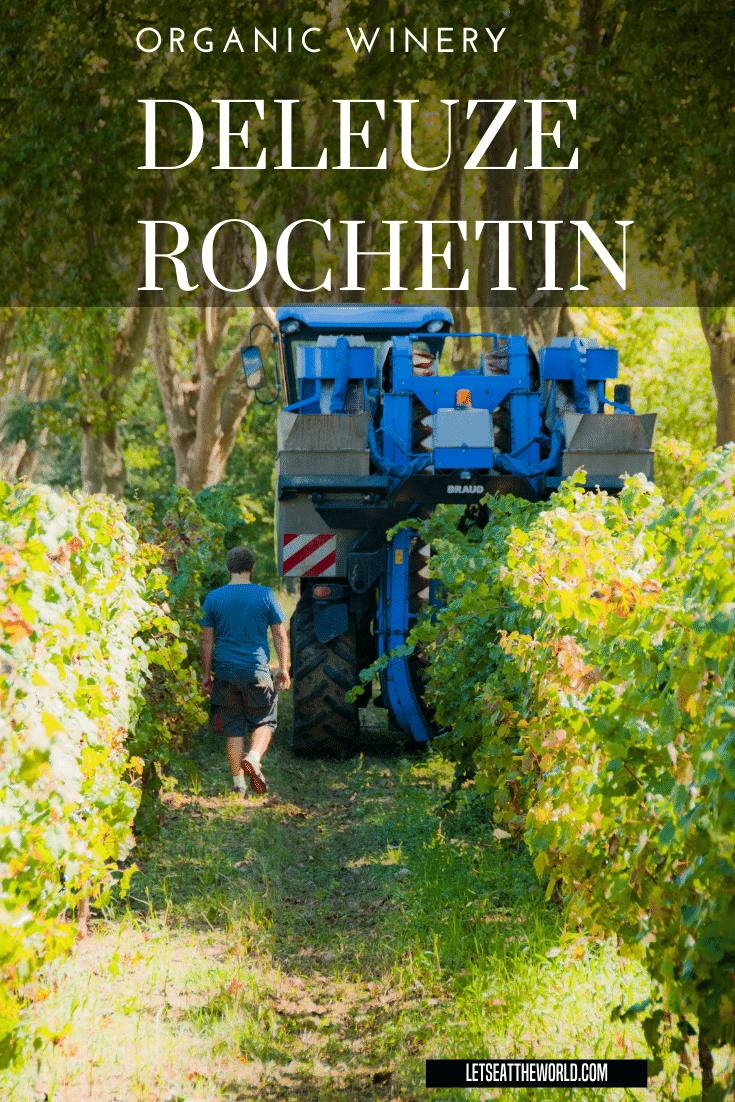
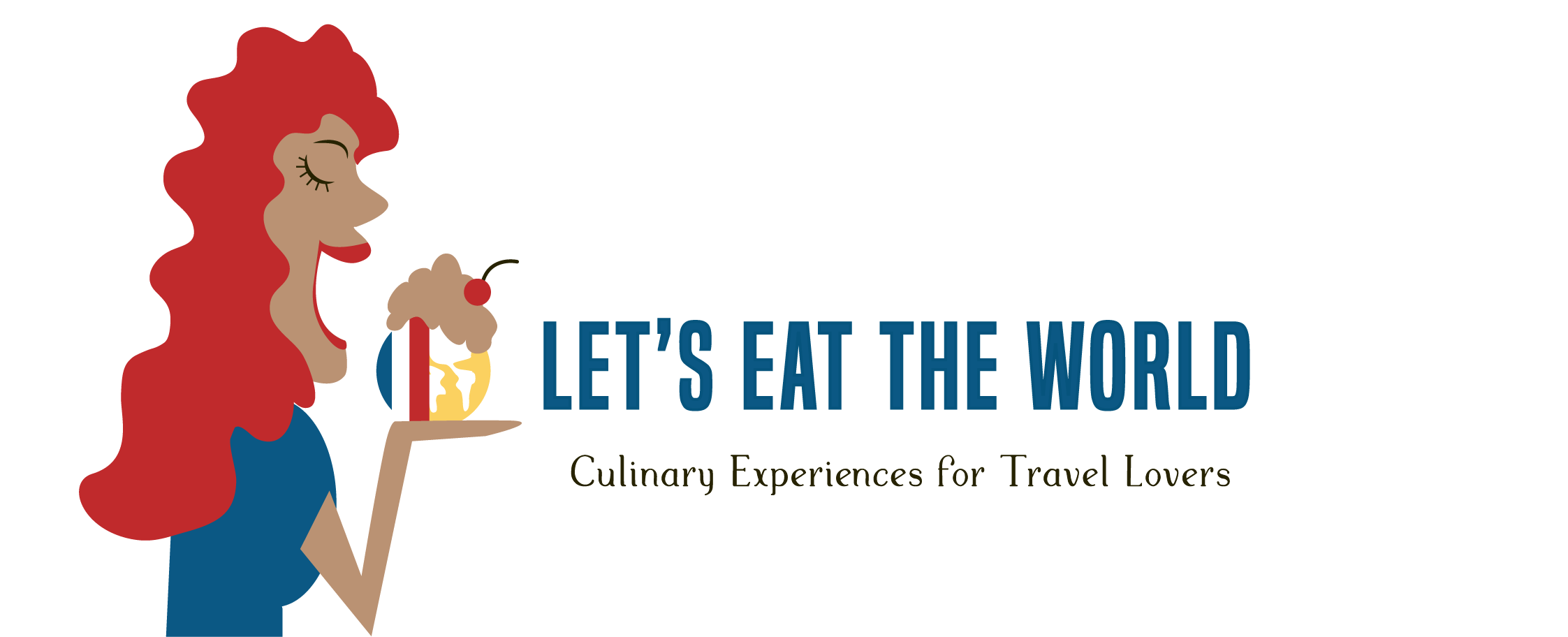
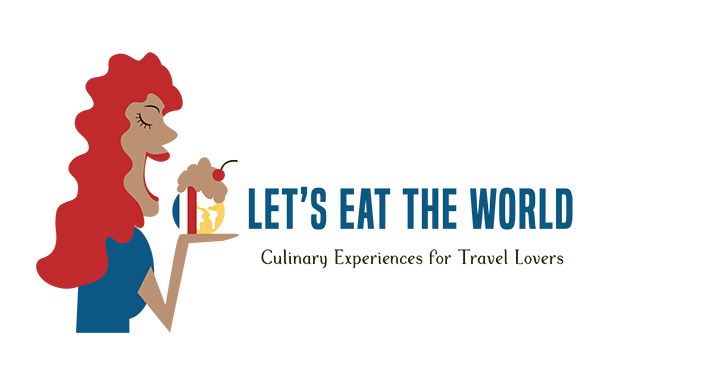
Interested in French cooking in Uzès? Join us on one of our culinary holidays in Uzès and discover not only the rich French cuisine of the Mediterranean and Provence but also this wonderful wine region Sign up!